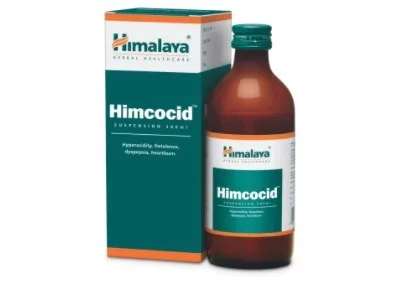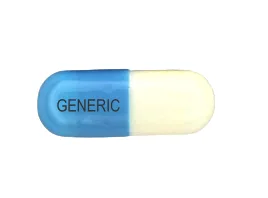- Your cart is empty
- Continue Shopping
Product
Humira (Adalimumab) 2 Pens $1979.00 Canadian Pharmacy
$0.00
Humira (Adalimumab) 2 Pens $1979.00 Canadian Pharmacy
TO VIEW PRICE ON MOBILE CLICK ADD TO CART
- Canadian Pharmacy Online Pharmacy | Online Canadian Pharmacy
- Need More Information Call Us 1-833-356-6337
Humira (Adalimumab) 2 Pens $1979.00 Canadian Pharmacy
What is Humira (adalimumab)?
The active drug in Humira is called adalimumab and available at lowest price from Certified Canadian Pharmacy Online.
USAGE
Humira is taken as an injection and available as a pre-filled pen.
Your doctor or pharmacist should provide instructions on how to properly administer the medication. It should also include an information packet with further instructions and information.
Storage
Humira must be kept cold and stored in the refrigerator. It is delivered in an insulated container to maintain its integrity.
Keep it in its original packaging until ready for use.
Do not freeze or ever use if it was previously frozen.
Keep medication away from direct sunlight.
When ready to use, take out of refrigerator and let naturally warm up. Do not try to warm it up faster.
When travelling or when not able to keep medication cold, Humira can be stored at room temperature (up to 77 degrees) for up to 2 weeks. Humira can be kept unrefrigerated for up to 14 days. If it exceeds 2 weeks or this temperature, d no not use.
When disposing of medication, do not flush down wastewater (i.e. toilet or sink) or put in household trash. Discard this medication according to your pharmacists instructions when expired or no loner needed.
SIDE EFFECTS
Humira can lead to mild or serious side effects. The following information below provides side effects that may occur when taking Humira but not limited to all possible side effects.
Consult your doctor and pharmacist for more information on the possible side effects associated with Humira.
Mild Side Effects
Mild side effects experienced by patients using Humira include:
- injection site reactions (pain, swelling and itching near areas of injection)
- headache
- respiratory infections such as colds
- rash
Most side effects are known to go away within a few days or weeks. If they don’t go away or worse, consult your physician.
Serious Side Effects
If you experience serious side effects related to takin Humira, consult your doctor immediately. If you feel the symptoms are life threatening seek medical emergency by calling 911.
Serious side effects experienced by patients taking Humira include:
Heart failure
Symptoms may include:
- sudden weight gain
- shortness of breath
- swelling of feet and ankles
Lupus-like syndrome (an immune system reaction)
Symptoms may include:
- shortness of breath
- join pain
- discomfort or pain in chest
- rash on arms and chest that worsen in sun
Nerve disorders or demyelinating diseases, such as multiple sclerosis (MS) or seizures.
Symptoms may include:
- vision problems
- dizziness
- tingling or numbness
- weakness in arms or legs
Blood disorders such as anemia (low levels of red blood cells):
Symptoms may include:
- bleeding
- bruising
- appearance of pale skin
- long-lasting fever
Liver damage
Symptoms may include:
- stomach ache
- loss of appetite
- vomiting
- jaundice (skin and eyes turn yellow)
Side effect details
Allergic Reaction
Humira like any medication may cause allergic reactions with some patients. 6% of those given Humira in clinical study of children with juvenile idiopathic arthritis experienced an allergic reaction within the first 48 weeks of treatment. It is unknown how many of the children receiving the placebo experienced allergic reactions.
In a separate study with children with Crohn’s disease (CD), 5% of the subjects experience mild allergic reactions. Of the children who received the placebo, it’s unknown how many had allergic reactions.
For those taking other medications along with Humira, it is unknown how often allergic reactions occurred.
Symptoms of allergic reactions may include:
- skin rash
- itchiness
- flushing of skin (warmth and reddening of skin)
It’s possible but rare for severe allergic reactions when taking Humira. However, it’s not known how often these have occurred during clinical trials.
Symptoms of a severe allergic reaction may include:
- difficulty breathing
- swelling under the skin, typically the hands & feet, eyelids and lips
- swelling of throat, mouth or tongue
Contact a doctor immediately if you feel you are experiencing a severe allergic reaction. If you feel symptoms are life-threatening you should seek medical emergency or call 911.
Long Term Side Effects
Long-term side effects can occur for patients using Humira. These can include the growth of tumors or the development of cancer such as Lymphoma.
Consult your doctor if you have any concerns about the long-term side effects associated with Humira.
Injection Site Reaction
Injection site reactions are common with taking injectable medications including Humira. This was the most common side effect found during clinical studies. It was reported during the study, 20% of subjects taking Humira developed injection site reactions vs 14% of those taking the placebo.
7% of patients stop taking Humira due to injection site reactions. In most cases, the reactions are mild and don’t impact a patients daily life.
Symptoms of injections site reactions may include: swelling, redness, itching, pain or bleeding.
Inform your doctor if you experience injection site reactions during your Humira treatment. Your doctor may provide guidance to help with injection site reactions and ease any discomfort.
Weight Gain
In clinical studies, weight gain wasn’t reported. Weight gain has been reported when used with medications such as TNF (tumor necrosis factor) blockers.
Cancer (such as lymphoma)
Humira includes a black box warning on the packaging as the medication has been known to increase the risk of cancer such as lymphoma. Humira, like other TNF blockers, have been linked to an increased risk of cancer.
Study Results
Adults taking Humira in a clinical study found that people were 3 times more likely to develop lymphoma than those in the US who didn’t take the drug.
Hepatosplenic T-cell lymphoma is a rare form of lymphoma which as been reported in children and young adult men, however in most cases they had ulcerative colitis (UC) or Crohn’s disease (CD).
Aside from lymphoma, nonmelanoma is the second most commonly type of cancer followed by breast cancer, colon cancer, prostate cancer, and lung cancer.
Whether Humira causes cancer is still unknown and there has been conflicting results from studies on whether TNF blockers increase the risk of developing cancer.
Some conditions Humira is used to treat, such as rheumatoid arthritis, are linked with a higher risk of developing lymphoma.
Symptoms of lymphoma
Symptoms of lymphoma may include:
- weight loss
- swollen lymph nodes
- fatigue
- easily bruise or bleed
- chills
If you are concerned with the risks associated with taking Humira, speak with your doctor. They can help determine the risk vs benefits of taking this medication or whether they may need to recommend another drug.
Hair Loss
During the clinical trials, hair loss was not reported as a side effect of Humira. However, there have been reports from patients taking Humira after it was released into the market.
Since the reports were released after Humira’s clinical studies, it’s not conclusive whether it plays a role in hair loss.
Consult your doctor if you are concerned about hair loss while taking Humira.
Skin Rash
Skin rashes are one of the most common side effects when taking Humira.
In clinical studies on people with rheumatoid arthritis, 12% reported a rash who were taking Humira compared to 6% who were taking a placebo.
Most cases of skin rashes were mild and eventually went away. Across all studies 0.3% of people stopped taking Humira due to the rashes.
Inform your doctor if you’ve developed a rash while taking Humira as they may provide additional guidance to treat rashes and ease discomfort.
A rash can also be a sign of an allergic reaction. If you develop any symptoms mentioned above associated with allergic reactions, consult your doctor. Seek medical attention immediately if you believe you’re having a severe allergic reaction.
Infections
Humira has a black box warning regarding the increased risk of serious infections such as pneumonia or tuberculosis (TB). Since Humira may weaken the immune system it can make patients more susceptible to fight off infections.
Study Results
In clinical studies involving all uses of Humira, people had serious infections caused by fungi, viruses and bacteria. It was found that those who took Humira had higher rates of infection than those who took the placebo. Some people experienced severe infections which required hospitalization and even death.
Before taking Humira, your doctor may test you for tuberculosis. If they find you have an existing TB infection or at risk for TB, they may treat you for TB before and during treatment with Humira. Since you may still develop TB during treatment with Humira, they may test you for TB while taking Humira.
Symptoms of serious infections such as tuberculosis include:
- fever
- coughing blood
- long-lasting cough
- unexplained weight loss
Notify your doctor immediately if you notice you are experiencing any of these symptoms while taking Humira. Your doctor may choose to pause treatment if they discover a serious infection.
During treatment a doctor should test you for existing infections and check for close signs of TB. If you doctor knows you have TB they may provide you with medication to treat it.
Taking TNF blockers may increase the risk of developing lymphoma or other cancers for adults and children. Cases have been reported in children, teenagers and young adults developing unusual cancers from taking TNF blockers.
A rare type of cancer called heptosplenic T-cell lymphoma has been reported in rare cases that can be fatal.
Humira or TNF blockers may increase chances of developing 2 types of skin cancers called basal cell and squamous cell. These are generally not fatal provided they are treated early. Inform your doctor if you have any open sources or bumps that do not heal.
The Food and Drug Administration tracks side effects on approved drugs.
WARNINGS & PRECAUTIONS
Before starting Humira, inform your doctor of your medical history such as recent/current/repeated infections such as TB infection, histoplasmosis or hepatitis B; blood bone marry problems (such as low white/red blood cells or platelets), certain brain/nerve disorders (such as MS, Guillain-Barre syndrome), heart disease, cancer or lupus.
Wash your hands thoroughly to prevent the spread of infections. Humira may increase your chances of getting infections or worsening infections. Inform your doctor if you have been exposed to an infection and avoid contact with people with measles, chickenpox or have the flu.
Consult your doctor if you are looking to get any vaccinations or immunizations and avoid people have recently received vaccinations.
Be attentive when using sharp objects such as razors and nail cutters to avoid getting cut, bruised or injured. Avoid contact sports.
Inform your doctor about all medications you are currently taking including over-the-counter drugs, herbal supplements and other prescription medications.
Let your doctor know if you are planning on getting pregnant or pregnant if you are using or planning to use Humira. Humira should only be used if clearly needed during pregnancy. Speak to your doctor about the risks and benefits about taking Humira.
Since this medication passes through breast milk you should consult your doctor before breast-feeding.
Older adults are at an increased risk of infections while using this medication.
Drug Interactions
Some medications may change the effectiveness or increase the risk of side effects.
The content on this page does not contain all possible drug interactions.
Share information with your doctor on all prescription and non-prescription medications, herbal supplements and vitamins.
Do not start, stop or adjust your dosage without your doctors approval.
Some drugs that may interact with Humira include:
- other TNF blockers such as infliximab, etanercept
- drugs that weaken the immune system such as anakinra, abatacept.
Known drugs that may cause problems when used together with Humira are:
- Orencia (abatacept)
- Kineret (anakinra)
- Other TNF inhibitors
Manufacturer By Zydus Cadila
IMPORTANT NOTES:
The information contained on this website is intended as an educational aid only. It is not intended as medical advice for individual conditions or treatment. It is not a substitute for a medical exam, nor does it replace the need for services provided by medical professionals. Talk to your doctor, nurse or pharmacist before taking any prescription or over the counter drugs (including any herbal medicines or supplements) or following any treatment or regimen. Only your doctor, nurse, or pharmacist can provide you with advice on what is safe and effective for you.
Related Products
HIMCOCID
HOODIA
HYALURONIC ACID
Can't Login into Your Account?
Call Us: 1-833-356-6337

We Accept Credit Cards, International Money Orders, Cash, Certified Checks and Bank Transfer
Canada Canadian Pharmacy dispenses all medications from licensed and regulated independent pharmacy partners internationally, including but not limited to Australia, Canada, New Zealand, India, Mauritius, Turkey, United States, Singapore and the United Kingdom. All Images on this site are registered trademarks of original manufacturers, international exporters, and property of their respective owners and are for reference only. Canada Pharmacy Online procures all products from licensed regulated international in order to provide you unbeatable lowest prices and prescription discounts for all your prescription medications, medications and Canadian Drugs at Canada Pharmacy Online.
CUSTOMER INFORMATION
TOP SELLERS
2005-2023 Rxdrugscanada.com





